Dry Skin Around Eyes: 15 Natural Home Remedies That Work
Get rid of the itchy and flaky skin around your eyes with simple and effective tips.

Image: Shutterstock
What is dry skin around the eyes? How can you treat it? The skin surrounding your eyes is particularly delicate. It turns dry if not properly cared for. But poor treatment is not the only factor at work. Too much eye makeup, caffeine, insufficient sleep, pollution, and other external factors may overwhelm your eyes, making them look dull, weary, and gritty. Furthermore, because the skin around your eyes is so fragile, you will not be able to hide the marks of negligence easily. If you are wondering how to treat dry skin around the eyes, do not worry! This article features a list of natural and simple home remedies for dealing with it. Keep reading to learn more.

In This Article
What Causes Dry Skin Around The Eyes?
Dr. Stefani Kappel, a board-certified dermatologist, says, “The skin around your eyes is the first skin to get dry if there is a drop in humidity or irritants in your skin care products. Also, the dermis and epidermis around the eye, which we call periorbital skin, is thinner and more susceptible to irritation than the skin on the rest of the face.”
Multiple factors can be responsible for dry skin around your eyes, especially on your eyelids and the undereye area. The skin around your eyes can be dry, itchy, and flaky due to:
- Weather conditions (low humidity and dry weather, especially during seasonal change)
- Excessive use of hot water
- Aging
- Not removing makeup properly
- Excessive rubbing
- Harsh chemicals (present in soaps, skincare, and cosmetic products)
However, other underlying health factors can also cause dryness around your eyes and make the skin itchy and flaky.
These include:
- Contact Dermatitis
This is caused when your skin comes in contact with an irritant in your skin care or eye care products (1). Sunscreen, moisturizer, face wash, mascara, and styling products – anything can irritate your skin. Identifying and avoiding these irritants can help relieve symptoms of dry skin around the eyes, potentially caused by contact dermatitis.
- Atopic Dermatitis
This condition is characterized by redness, itching, and scaling on your skin. It is a chronic condition and can be caused by your immune system, triggered by the environment, or may run in your family. It has been found to impact the area around the eyes (2). You need to consult a doctor to manage its symptoms.
- Blepharitis
It is the inflammation around the eyelids, typically affecting both eyes. This condition results from the blockage of small oil glands near the eyelashes’ base, leading to irritation and redness. It can be caused by a bacterial or a skin infection. You may experience a burning sensation, itching, swollen eyelids, dry eyes, crusting of the eyelids, or excessive tearing (3).
- Ocular Rosacea
It is an inflammatory condition that causes redness, burning, and itchy eyes. It frequently occurs in individuals with rosacea, a chronic skin condition characterized by redness on the face. This issue may affect the surface of your eye, especially in cases of dry eyes caused by tear evaporation (4).
- Facial Psoriasis
Psoriasis is an autoimmune condition that manifests as inflammatory, itchy scales on the skin. It can also affect the area around the eyes (5). Psoriasis may make your eyelids turn scaly (the scales usually cover the eyelashes) and the undereye area to become dry and crusty.
According to a cross-sectional study conducted on 4016 Danish adults with psoriasis, 2602 (64.8%) patients had psoriasis in hard-to-treat areas. The most frequently hard-to-treat area was the scalp (43%), followed by the face (29.9%), nails (24.5%), soles (15.6%), genitals (14.1%), and palms (13.7%), respectively.
Visit a dermatologist if you have any of these conditions. They can assess your condition and suggest a proper remedy.
However, if the dry skin around your eyes is due to general neglect or any other reason, you can show it some love with home remedies. These remedies will keep the skin around your eyes nourished and hydrated. Scroll down to check them out.
Note: Please make sure that none of these ingredients go into your eyes. Also, test these remedies on the inner arm or wrist before applying them under your eyes, as there is a risk of an allergic reaction, and it can be dangerous around the eyes.
Key Takeaways
- Aloe vera, glycerine, and vaseline moisturize the skin and fight signs of aging.
- Vitamin C, green tea bags, avocado, and honey reduce puffiness, heal wounds, and rejuvenate skin. Shea butter and olive oil reduce oxidative stress and skin damage, and hydrate skin.
- Drink fluids and stay hydrated. Use hypoallergenic face wash and moisturizer for the eye area. Avoid rubbing and scratching your eyes.
- Have a balanced diet. Consume fiber-rich food and fatty acids.
15 Home Remedies To Treat Dry Skin Around Your Eyes
Dealing with dry skin around your eyes can be frustrating, but there are effective home remedies that can help restore moisture and soothe irritation. From natural oils to gentle ingredients, these can nourish the delicate skin around your eyes. Explore these simple solutions to find what works best for you!
- Aloe Vera Gel
- Almond Oil
- Vitamin E Oil
- Glycerin
- Vaseline Or Petroleum Jelly
- Green Tea Bags
- Avocado
- Honey
- Cucumber
- Milk
- Shea Butter
- Olive Oil
- Yogurt
- Milk Cream
- Rose Water
1. Aloe Vera Gel
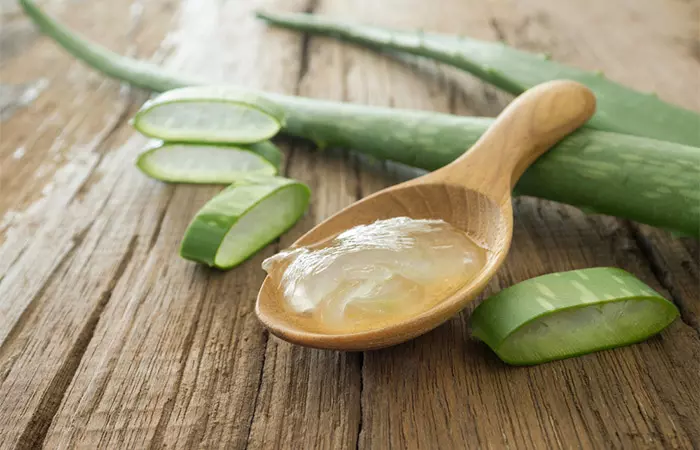
Aloe vera hydrates and moisturizes your skin. It also promotes collagen production by stimulating fibroblasts, thus preventing wrinkles (6). This is especially beneficial for treating dry patches of skin around your eyes.
You Will Need
1 tablespoon fresh aloe vera gel
Method
- Massage the aloe vera gel around your eyes, focusing on the dry parts.
- Leave it on overnight.
- Wash it off the next day.
- Repeat this every night.
Caution: Aloe vera has been reported to cause allergic contact dermatitis in some cases (7). Therefore, conduct a patch test when using it for the first time to check for allergic reactions.
2. Almond Oil
Almond oil is an excellent emollient that can heal dry skin. It is also beneficial in managing eczema and psoriasis (2).
You Will Need
A few drops of almond oil
Method
- Gently massage almond oil on the skin around your eyes.
- Leave it on overnight.
- Wash it off the next morning.
- Repeat this remedy every night.
Caution: Some individuals can experience allergic reactions to almond oil (9). Hence, conduct a patch test before using it on the affected area.
3. Vitamin E Oil
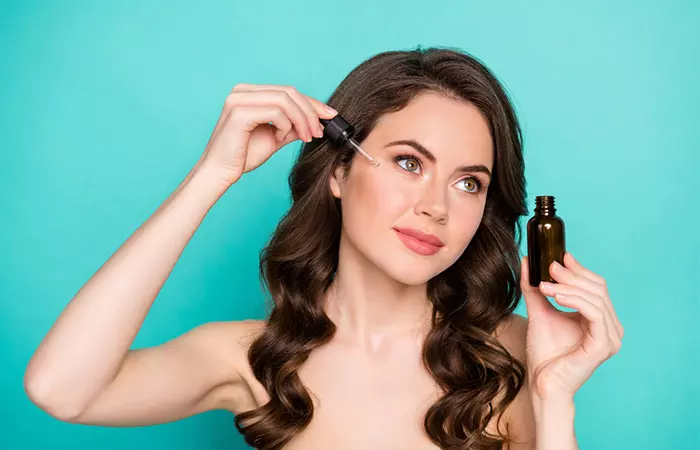
Vitamin E is an excellent antioxidant. It boosts collagen production, has anti-aging effects, and reduces dark circles (10). It also keeps the skin around your eyes youthful and healthy.
You Will Need
2 vitamin E capsules
Method
- Burst the capsules open carefully and extract the oil.
- Massage the oil around your eyes.
- Leave it on overnight.
- Repeat this every night.
Caution: In some cases, topical application of vitamin E has been associated with dermatitis (11). Hence, do a patch test before use.
4. Glycerin
Glycerin keeps your skin hydrated and prevents dryness. A study found that glycerin-containing cream was effective in treating atopic dry skin (12).
You Will Need
- A few drops of glycerin
- 2 cotton pads
Method
- Dab some glycerin on the cotton pads.
- Place the pads on your eyes.
- Leave them on for 5 minutes and then remove them.
- Leave the glycerin on your skin overnight.
- Wash it off the next morning.
- Repeat this every night.
Caution: Glycerin is largely non-toxic but can occasionally irritate sensitive skin (13). So, ensure you do a patch test before using it widely.
5. Vaseline Or Petroleum Jelly
Petroleum jelly helps to prevent moisture loss from your skin (14). This property of petroleum jelly keeps your skin hydrated and prevents dryness. However, it is a bit greasy, which may be undesirable to some people.
You Will Need
½ teaspoon Vaseline or any petroleum jelly
Method
- Take a tiny amount of petroleum jelly on your fingertips.
- Gently massage it on your eye area.
- Keep it on overnight.
- Wash your face with lukewarm water the next morning.
- Apply this every night.
Caution: Petroleum jelly is considered safe for most people, and it is also non-comedogenic, meaning it does not directly cause acne (15). However, it forms an occlusive barrier on the skin to seal in moisture, which can also trap in dirt and bacteria when applied on unwashed skin, consequently leading to breakouts. Therefore, always apply petroleum jelly on clean skin.
6. Green Tea Bags
Green tea has skin renewal and rejuvenating benefits (16). Although there is no evidence to prove the effectiveness of green tea in reducing dryness around the eyes, applying green tea bags to your skin can help prevent puffiness and dryness in the eye area.
You Will Need
- 2 green tea bags
- Water
Method
- Heat the water in a pan and pour it in a cup.
- Steep the two tea bags in hot water for a few minutes.
- Take them out and let them cool down.
- Place them over your eyelids.
- Leave the tea bags on for 15-20 minutes (or longer).
- Remove them and splash cool water on your eyes.
- Repeat the steps once daily (preferably before going to bed).
Caution: Green tea has been shown to have mild irritant effects in some individuals (17). So, do a patch test before using it for the first time.
7. Avocado
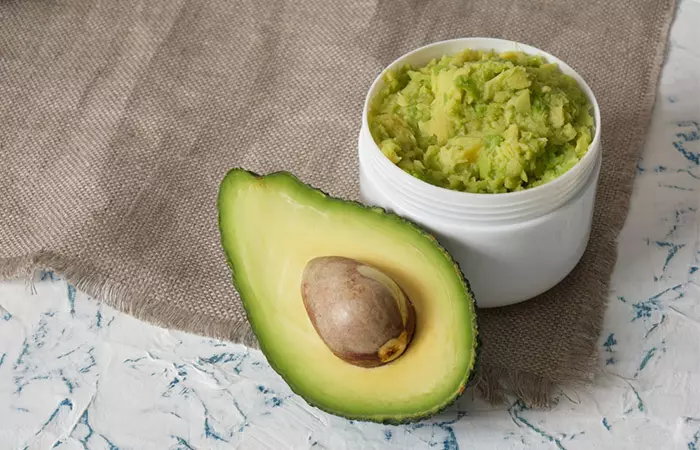
Avocado oil is extremely nourishing for dry and damaged skin. Its topical application has shown to increase collagen synthesis in rat studies (18). This may help reduce the appearance of eye wrinkles or Crow’s feet. Avocado pulp showed faster wound-healing properties in rat studies.
You Will Need
A few drops of avocado oil or 1 tablespoon avocado pulp (mashed)
Method
- If you are using avocado oil, massage the skin around your eyes gently with the oil.
- Leave it on overnight and wash it off the next morning.
- If you are using avocado pulp, apply the pulp around the eyes.
- Leave it on for 15-20 minutes.
- Use wet tissue to remove the pulp gently.
- Wash it off with lukewarm water.
- Repeat once every day before going to bed.
8. Honey
Honey has been used for healing and treating skin conditions since ancient times. Honey improves hydration and is an excellent emollient and humectant that keeps your skin healthy by preventing water loss and keeping it moisturized (19).
You Will Need
1 teaspoon organic or Manuka honey
Method
- Apply a very thin layer of honey on the skin around your eyes.
- Leave it on for 15-20 minutes.
- Wash it off with lukewarm water.
- Follow up with a hydrating eye cream.
- Repeat this routine every night.
Caution: In rare cases, honey has been associated with contact dermatitis (20). Therefore, conduct a patch test before using it topically.
9. Cucumber
 Trivia
TriviaCucumber has a cooling effect on the skin. When applied to the eye area, it reduces under-eye circles and eye bags, hydrates the skin, and reduces inflammation (21).
You Will Need
- 4-5 tablespoons cucumber juice (grate a cucumber and extract the juice)
- 2 cotton pads
Method
- Refrigerate the cucumber juice for half an hour.
- Soak the cotton pads with the juice.
- Place them on your eyes.
- Leave them on for 15-20 minutes.
- Remove the cotton pads.
- Rinse off the juice with cold water.
- Repeat this remedy every night.
10. Milk
Milk has a cooling effect on your skin. It keeps your skin nourished and hydrated. Milk contains lactic acid that can help improve skin texture and make it smooth (22).
You Will Need
- Raw milk
- 2 cotton pads
Method
- Dip the cotton pads in raw milk and place them on your eyes.
- Leave them on for 20 minutes.
- Remove the pads and wash your eyes with cold water.
- Repeat this once daily.
Caution: Lactic acid in milk can sometimes irritate sensitive skin (23). Therefore, do a patch test before using it on the skin.
11. Shea Butter
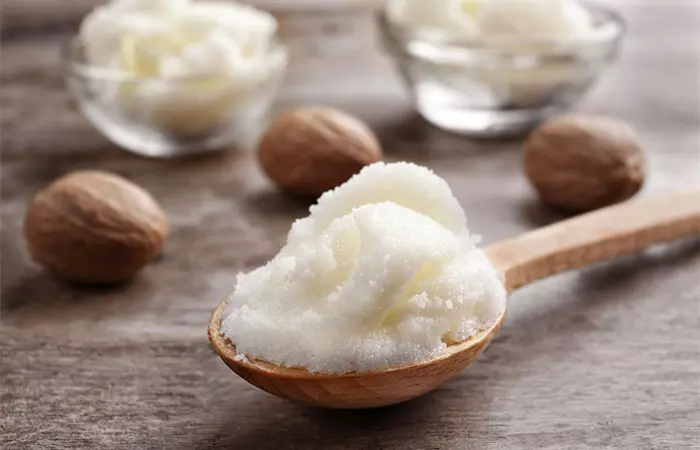
Shea butter is often used in commercial moisturizing creams and skin care products for its hydrating, anti-inflammatory, and moisturizing benefits (24). Hence, shea butter can be used to heal the skin around your eyes.
You Will Need
- 1 teaspoon raw shea butter
- 1 vitamin E capsule (optional)
Method
- Squeeze out the vitamin E oil from the capsule and mix it with shea butter.
- Rub a bit of the mixture between your fingers.
- Massage it gently on the skin around your eyes.
- Leave it on overnight.
- Wash it off the next day.
12. Olive Oil
The topical application of olive oil has an anti-inflammatory effect on the skin. It reduces oxidative damage, heals your skin, and promotes dermal reconstruction (25).
You Will Need
A few drops of cold-pressed olive oil
Method
- Gently massage the olive oil on the area surrounding your eyes.
- Leave it on overnight.
- Wash it off with cool water the next morning.
- Repeat this every night.
 Did You Know?
Did You Know?Clare, a blogger, writes about persistent dry and crepey skin under her eyes which even affected her makeup application. After using a lot of products, she finally tried extra virgin olive oil. She applied it 15 minutes before bedtime, following a warm cloth treatment to open pores. She summed up her personal experience thus: “After two nights of doing this, I noticed a massive difference in how my make up looked during the day. Not nearly as dry as before (i).”
13. Yogurt
Yogurt is often used in facial masks or applied on its own for its moisturizing benefits. It brightens your skin, calms it down, and improves its moisture levels (26).
You Will Need
1 tablespoon plain yogurt or curd
Method
- Apply yogurt around your eyes. Be careful not to get it in your eyes.
- Leave it on for 10-15 minutes.
- Wash it off with cool water.
- Repeat this once daily.
Caution: Yogurt contains lactic acid, which can occasionally irritate sensitive skin (27). Therefore, do a patch test before applying it to the affected area.
14. Milk Cream
Milk cream is a popular home remedy used for its moisturizing effects. It helps to keep the skin moisturized and youthful and leaves it feeling soft and smooth.
You Will Need
1 teaspoon milk cream or malai
Method
- Gently massage the milk cream into the skin around your eyes.
- Leave it on for 15-20 minutes.
- Use a soft tissue to wipe off the cream.
- Repeat this routine once daily.
15. Rose Water

Rose water rejuvenates your skin. It has an anti-inflammatory effect on your skin and helps reduce redness, puffiness, and inflammation (28). It may not prevent dryness, but it can help to keep the skin calm and rejuvenated. You can easily prepare rose water at home. Rosewater prepared at home is more beneficial than commercially available ones.
You Will Need
- 2 tablespoons rose water
- 2 cotton pads
Method
- Soak the cotton pads in rose water.
- Place them on your eyes.
- Leave them on for 15-20 minutes and relax.
- Remove the pads and repeat the same every night before going to bed.
Caution: Rose water has been associated with mild irritant effects in sensitive individuals (29). So, do a patch test when using it for the first time.
Preventing dryness around your eyes is not a difficult task. Follow these simple home remedies for dry eyes to take care of the skin around your eyes. Also, being a little careful with how you treat your skin and eyes can keep them healthy for long. Take a look at the precautions you need to follow to prevent dryness on the skin around your eyes.
How To Prevent Dryness Around Your Eyes – Tips To Follow
1. Keep Yourself Hydrated
Drinking water helps maintain the moisture balance in your body and prevents dehydrated skin.
2. Avoid Harsh Face Washes
Always opt for soap-free, hypoallergenic, and mild face washes. Such face washes don’t strain your skin or dry it out.
3. Keep The Eye Area Moisturized
Use a good eye cream to moisturize your eye area. Your regular face cream will not work on the delicate eye area; it needs specific products to stay healthy.
4. Avoid Rubbing Your Eyes
Since the skin around your eyes is delicate, rubbing it too hard or excessively can damage the capillaries and make your eyes look swollen and bruised.
5. Limit Your Sun Exposure
The harmful UV rays of the sun can cause sun damage, fine lines, dryness, and wrinkling of the skin around your eyes (30). Always apply sunscreen on the area to keep it protected, and wear sunglasses when you step out.
6. Remove Makeup Every Day
If you apply makeup on or around your eyes, make it a point to remove it properly every night before going to bed. Also, while buying cosmetics, make sure you are not allergic to them.
7. Avoid Certain Ingredients In Your Products
Avoid putting any product on your skin with parabens, lanolin, formaldehyde and formaldehyde-releasing agents, and fragrances. These often cause skin irritation and may lead to dryness around your eyes.
8. Avoid Scratching The Area Around Your Eyes
If you have dry and itchy skin, do not scratch it. This may worsen the condition. Apply anti-itching cream or a hot or cold compress to reduce irritation.
Apart from these eye care tips and precautions, you also need to take care of your diet to improve your skin and overall health.
What To Eat And Avoid To Treat Dry Skin Around The Eyes
1. Consume Probiotics
Probiotics improve the overall health of your skin (31). Try including probiotics, such as fermented foods, yogurt, and sauerkraut, in your diet.
2. Follow A Balanced Diet
Following a balanced diet helps your body deal with a variety of health and skin conditions (32). Include fish, eggs, meat, vegetables, fruits, and whole grains in your diet. These foods are loaded with antioxidants that help in repairing damaged skin cells and improve your skin quality.
3. Include Essential Fatty Acids
Essential fatty acids protect the lipid layer of your skin and prevent it from drying out (33). That is why it is better to use unhydrogenated vegetable oils while cooking. Include canola oil and olive oil in your diet.
4. Consume Fiber-Rich Food
Fiber helps flush out the toxins from your body that have accumulated from environmental factors, such as dust and pollution. Eat foods such as whole-wheat bread, corn, kidney beans, apples, and Brussels sprouts to meet your daily fiber requirements.
Additionally, try to avoid processed, fried, and spicy foods. If your body is healthy from within, it shows on your skin.
Infographic: 5 Easiest Home Remedies To Moisturize Dry Skin Around The Eyes
Dry skin around the eyes looks and feels unpleasant. Fortunately, it can be managed quite easily, using natural ingredients. Of all the home remedies you can apply to nourish, hydrate and rejuvenate the skin around your eyes, here are the most convenient and easily accessible ones.
Check out the infographic and pick one that you can apply at a moment’s notice.
Some thing wrong with infographic shortcode. please verify shortcode syntax
Dry skin around the eyes is triggered due to various reasons like lack of skin care, insufficient sleep, pollution, and too much eye makeup. Moreover, since the skin around the eyes is delicate, it is more prone to dryness. This condition can be managed with aloe vera, almond oil, yogurt, rose water, shea butter, avocado, cucumber, vitamin E oil, green tea bags, and milk cream. In addition to these, following a few preventive tips, like staying hydrated and avoiding harsh face washes and rubbing your eyes, may help minimize the dryness around the eyes.
Frequently Asked Questions
How can I identify if my dry skin is caused by an underlying condition?
If your dry skin persists despite using moisturizers or worsens with time, it may be linked to an underlying condition. Look for other symptoms like redness, swelling, or itching, and consider consulting a healthcare professional for a proper evaluation.
Can you use jojoba oil around the eyes?
According to Dr. Kappel, “Of all the oils that are used in skin care, jojoba oil is the safest. However, when applying anything around the eyes, keeping any products about 1 cm from the eyelid margin is recommended. This is because there can be migration across the skin, and although jojoba oil is safe to use, you would want to keep it from migrating into your eye.”
Is dimethicone good for dry skin around the eyes?
Dr. Kappel says, “No. Dimethicone can actually increase skin irritation, especially for those with sensitive skin. This is due to the coding property. In addition, it can be an eye irritant. So, if it migrates into the eye, it can cause a corneal abrasion or corneal ulceration and severe eye irritation.”
Can allergies cause dry skin around the eyes?
Yes, they can. Consult a doctor and get yourself tested for allergies. You may get allergies from any topical ingredient or food.
How to soothe irritated skin around eyes?
Follow the home remedies, use topical ointments, and develop a good skincare routine, especially for the skin around your eyes.
What deficiency causes dry skin around eyes?
Vitamin D deficiency and deficiency of minerals like zinc and iron can cause dry skin around the eyes.
Is Vaseline good for dry skin under the eyes?
Yes, it is a tried and tested method to keep the skin around the eyes soft and to lock in moisture to rejuvenate dry skin.
Illustration: Dry Skin Around The Eyes: 15 Home Remedies To Treat It
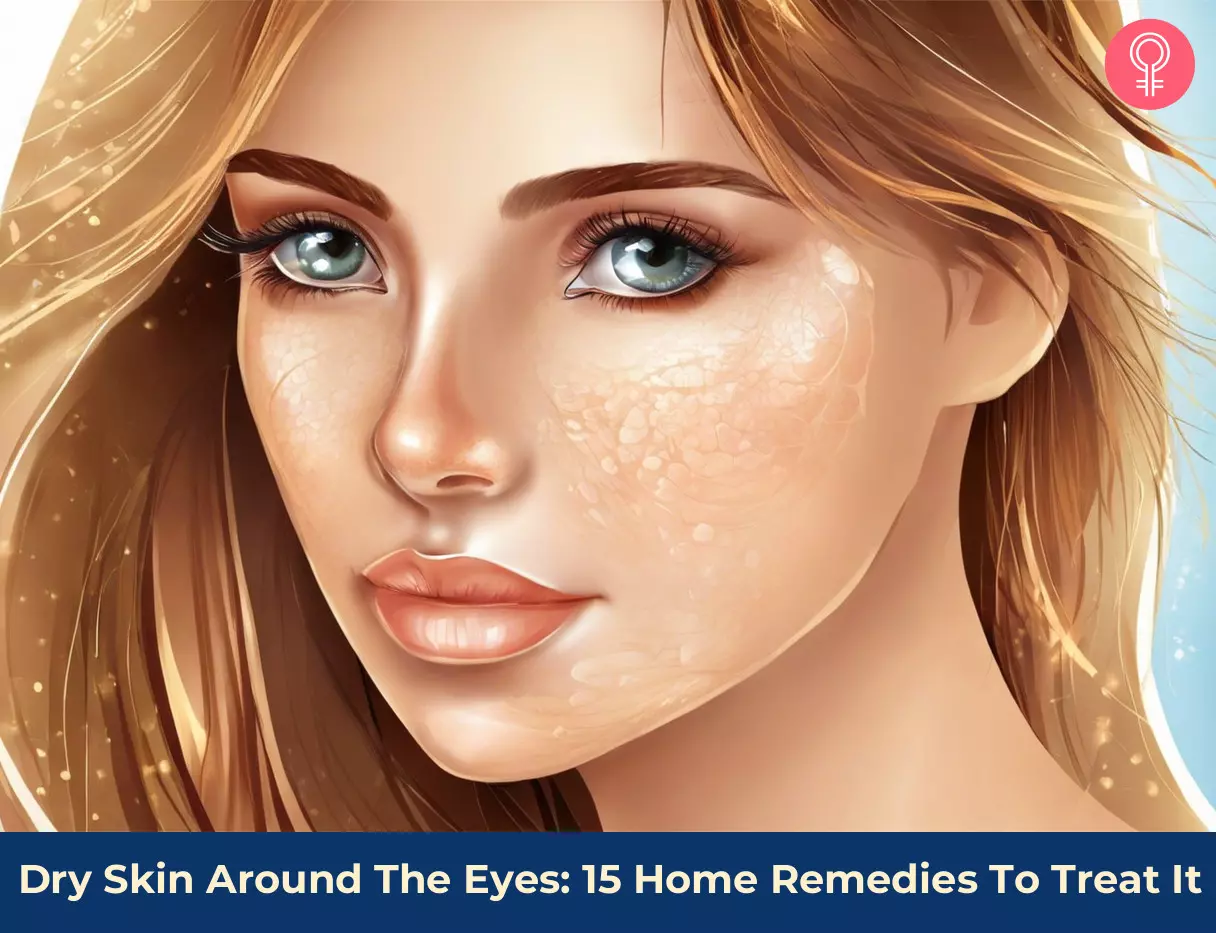
Image: Stable Diffusion/StyleCraze Design Team
Dry eyelids can be uncomfortable and irritating. Watch this video to learn about the 7 reasons why this happens and how to treat it.
Personal Experience: Source
StyleCraze's articles are interwoven with authentic personal narratives that provide depth and resonance to our content. Below are the sources of the personal accounts referenced in this article.
i. How I battled my dry eyes problem.,https://claresbeauty.wordpress.com/2014/09/20/how-i-battled-my-dry-eyes-problem/
References
Articles on StyleCraze are backed by verified information from peer-reviewed and academic research papers, reputed organizations, research institutions, and medical associations to ensure accuracy and relevance. Read our editorial policy to learn more.
- Advancing the understanding of allergic contact dermatitis: from pathophysiology to novel therapeutic approaches. Frontiers in Medicine US National Library of Medicine National Institutes of Health.
https://pmc.ncbi.nlm.nih.gov/articles/PMC10239928/ - A review of 79 cases of eyelid dermatitis. Journal of the American Academy of Dermatology US National Library of Medicine National Institutes of Health.
https://pubmed.ncbi.nlm.nih.gov/2768572/ - Blepharitis. US National Library of Medicine National Institutes of Health.
https://www.ncbi.nlm.nih.gov/books/NBK459305/ - Ocular manifestations of rosacea: A clinical review. Clinical & experimental ophthalmology US National Library of Medicine National Institutes of Health.
https://pubmed.ncbi.nlm.nih.gov/33403718/ - Psoriasis beyond the skin: Ophthalmological changes (Review). Experimental and therapeutic medicine US National Library of Medicine National Institutes of Health.
https://pmc.ncbi.nlm.nih.gov/articles/PMC8311223/ - Aloe Vera: A Short Review. Indian Journal of Dermatology US National Library of Medicine National Institutes of Health.
https://www.ncbi.nlm.nih.gov/pmc/articles/PMC2763764/ - Allergic contact dermatitis to Aloe vera. Contact dermatitis US National Library of Medicine National Institutes of Health.
https://pubmed.ncbi.nlm.nih.gov/17868225/ - The uses and properties of almond oil Complementary Therapies in Clinical Practice US National Library of Medicine National Institutes of Health.
https://pubmed.ncbi.nlm.nih.gov/20129403/ - An Updated Overview of Almond Allergens. Nutrients US National Library of Medicine National Institutes of Health.
https://pmc.ncbi.nlm.nih.gov/articles/PMC8399460/ - Vitamin E in Dermatology Indian Dermatology Online Journal US National Library of Medicine National Institutes of Health.
https://www.ncbi.nlm.nih.gov/pmc/articles/PMC4976416/ - Vitamin E and allergic contact dermatitis. Dermatitis US National Library of Medicine National Institutes of Health.
https://pubmed.ncbi.nlm.nih.gov/20487657/ - A double-blind study comparing the effect of glycerin and urea on dry eczematous skin in atopic patients. Acte dermato-venereologica US National Library of Medicine National Institutes of Health.
https://pubmed.ncbi.nlm.nih.gov/12013198/ - Contact urticaria syndrome and protein contact dermatitis caused by glycerin enema. JAAD case reports US National Library of Medicine National Institutes of Health.
https://pmc.ncbi.nlm.nih.gov/articles/PMC4810294/ - Moisturizers: The Slippery Road. Indian Journal of Dermatology US National Library of Medicine National Institutes of Health.
https://www.ncbi.nlm.nih.gov/pmc/articles/PMC4885180/ - Petroleum jelly: A comprehensive review of its history uses and safety. Journal of the American Academy of Dermatology US National Library of Medicine National Institutes of Health.
https://pubmed.ncbi.nlm.nih.gov/37315800/ - Applications of Tea (Camellia sinensis) and Its Active Constituents in Cosmetics US National Library of Medicine National Institutes of Health.
https://www.ncbi.nlm.nih.gov/pmc/articles/PMC6930595/ - Anti-inflammatory Action of Green Tea. Anti-inflammatory & anti-allergy agents in medicinal chemistry US National Library of Medicine National Institutes of Health.
https://pubmed.ncbi.nlm.nih.gov/27634207/ - Anti-inflammatory and Skin Barrier Repair Effects of Topical Application of Some Plant Oils International Journal of Molecular Sciences US National Library of Medicine National Institutes of Health.
https://www.ncbi.nlm.nih.gov/pmc/articles/PMC5796020/ - Honey in dermatology and skin care: A Review Journal of Cosmetic Dermatology US National Library of Medicine National Institutes of Health.
https://pubmed.ncbi.nlm.nih.gov/24305429/ - Allergic contact dermatitis caused by propolis-enriched honey: A case of severe penile oedema. The Australasian journal of dermatology US National Library of Medicine National Institutes of Health.
https://pubmed.ncbi.nlm.nih.gov/30178472/ - Evaluating the potential benefits of Cucumbers for Improved Health and Skin Care The Journal of Aging Research & Clinical Practice.
http://www.jarcp.com/3050-evaluating-the-potential-benefits-of-cucumbers-for-improved-health-and-skin-care.html - Epidermal and dermal effects of topical lactic acid. Journal of the American Academy of Dermatology US National Library of Medicine National Institutes of Health.
https://pubmed.ncbi.nlm.nih.gov/8784274/ - Lactic Acid Chemical Peeling in Skin Disorders Clinical cosmetic and investigational dermatology US National Library of Medicine National Institutes of Health.
https://pmc.ncbi.nlm.nih.gov/articles/PMC11055559/ - Effects of topical and Dietary Use of Shea Butter on Animals American Journal of Life Sciences American Journal of Life Sciences Science Publishing Group.
https://www.sciencepublishinggroup.com/journal/paperinfo.aspx?journalid=118&doi=10.11648/j.ajls.20140205.18 - Olive oil inhibits ageing signs induced by chronic stress in ex vivo human skin via inhibition of extracellular-signal-related kinase 1/2 and c-JUN pathways. International journal of cosmetic science US National Library of Medicine National Institutes of Health.
https://pubmed.ncbi.nlm.nih.gov/30740755/ - Clinical efficacy of facial masks containing yoghurt and Opuntia humifusa Raf. (F-YOP). Journal of Cosmetic Science US National Library of Medicine National Institutes of Health.
https://pubmed.ncbi.nlm.nih.gov/22152494/ - New lactic acid bacteria for skin health via oral intake of heat‐killed or live cells. Animal science journal = Nihon chikusan Gakkaihō US National Library of Medicine National Institutes of Health.
https://pmc.ncbi.nlm.nih.gov/articles/PMC6001785/ - Pharmacological Effects of Rosa Damascena. Iranian Journal of Basic Medical Sciences US National Library of Medicine National Institutes of Health.
https://www.ncbi.nlm.nih.gov/pmc/articles/PMC3586833/ - Skin anti‐inflammatory activity of rose petal extract (Rosa gallica) through reduction of MAPK signaling pathway. Food science & nutrition US National Library of Medicine National Institutes of Health.
https://pmc.ncbi.nlm.nih.gov/articles/PMC6261181/ - UV Radiation and the Skin International Journal of Molecular Sciences US National Library of Medicine National Institutes of Health.
https://www.ncbi.nlm.nih.gov/pmc/articles/PMC3709783/ - Health effects of probiotics on the skin. Critical Reviews in Food Science and Nutrition US National Library of Medicine National Institutes of Health.
https://pubmed.ncbi.nlm.nih.gov/24364369/ - Diet and Dermatology The Journal of Clinical and Aesthetic Dermatology US National Library of Medicine National Institutes of Health.
https://www.ncbi.nlm.nih.gov/pmc/articles/PMC4106357/ - Essential Fatty Acids and Skin Health Linus Pauling Institute Oregon State University.
https://lpi.oregonstate.edu/mic/health-disease/skin-health/essential-fatty-acids
Read full bio of Vincent Marin
- Dr. Stefani Kappel is a board-certified dermatologist and a Mohs Micrographic dermatological surgeon with over 15 years of experience in skin disorders and rejuvenation procedures. She received her medical degree with honors from UC Irvine College of Medicine and went on to do her residency in dermatology at UCLA. She also has a medical grade skincare line called MDAiRE.
 Dr. Stefani Kappel is a board-certified dermatologist and a Mohs Micrographic dermatological surgeon with over 15 years of experience in skin disorders and rejuvenation procedures. She received her medical degree with honors from UC Irvine College of Medicine and went on to do her residency in dermatology at UCLA. She also has a medical grade skincare line called MDAiRE.
Dr. Stefani Kappel is a board-certified dermatologist and a Mohs Micrographic dermatological surgeon with over 15 years of experience in skin disorders and rejuvenation procedures. She received her medical degree with honors from UC Irvine College of Medicine and went on to do her residency in dermatology at UCLA. She also has a medical grade skincare line called MDAiRE.
Read full bio of Ramona Sinha
Read full bio of Anjali Sayee
Read full bio of Krati Darak








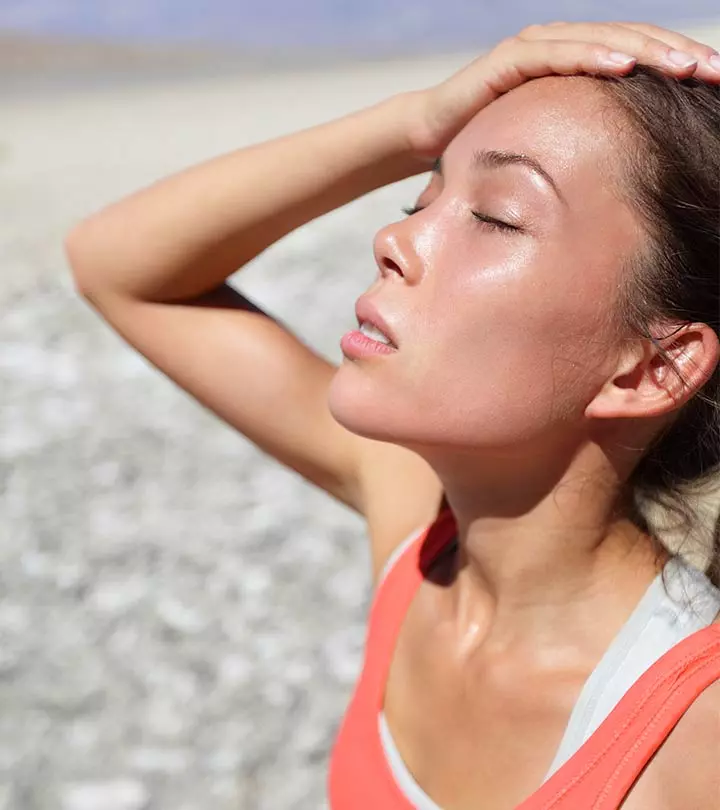





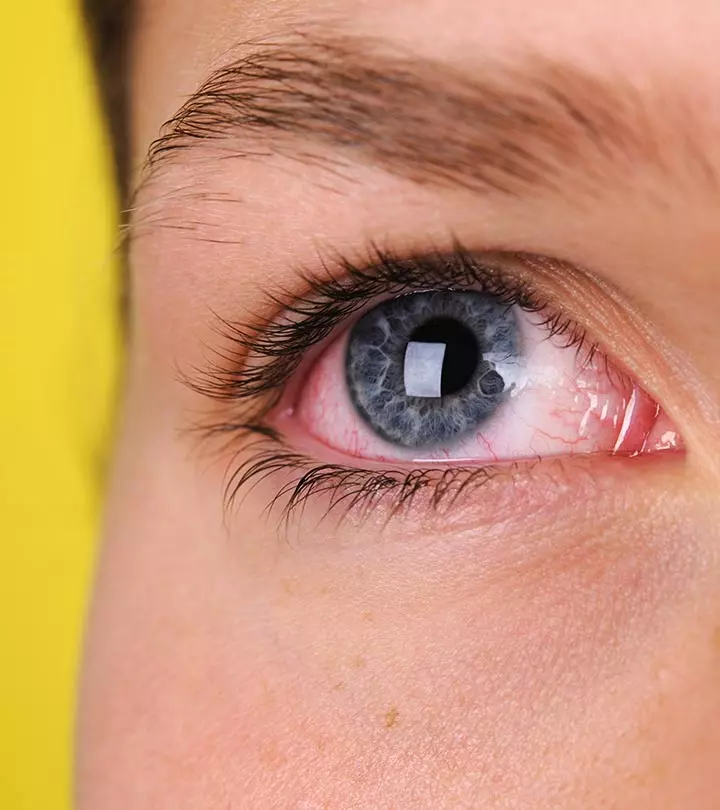
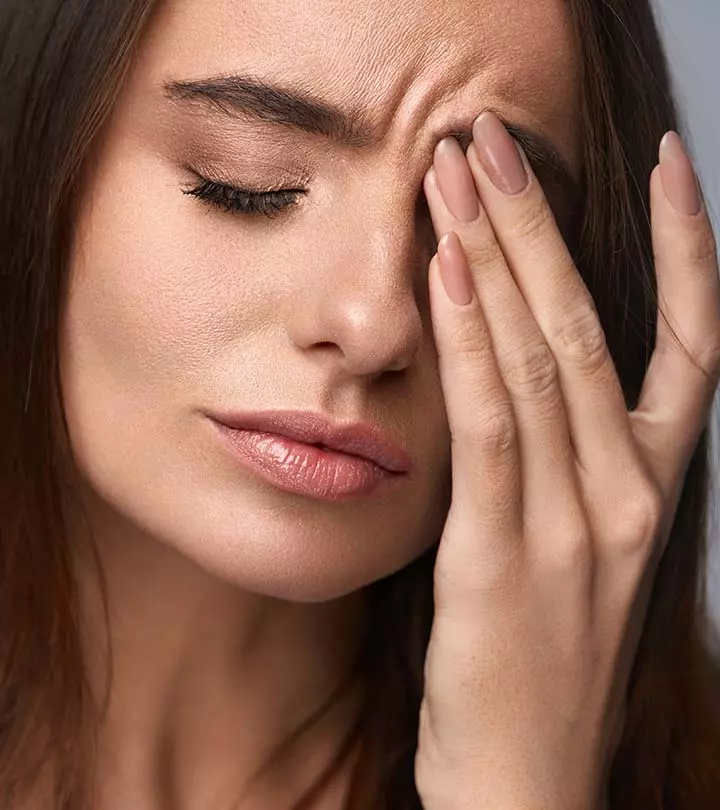
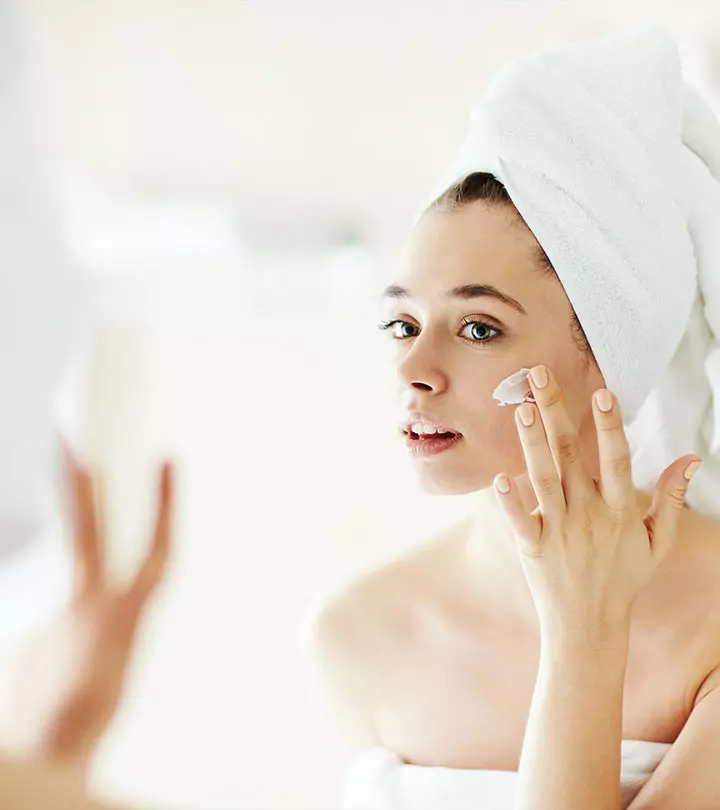

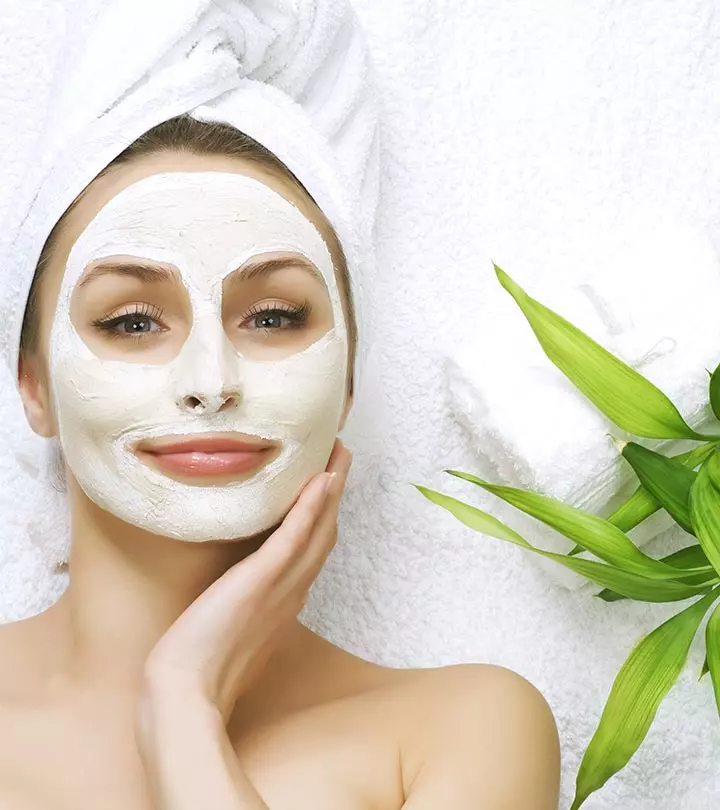
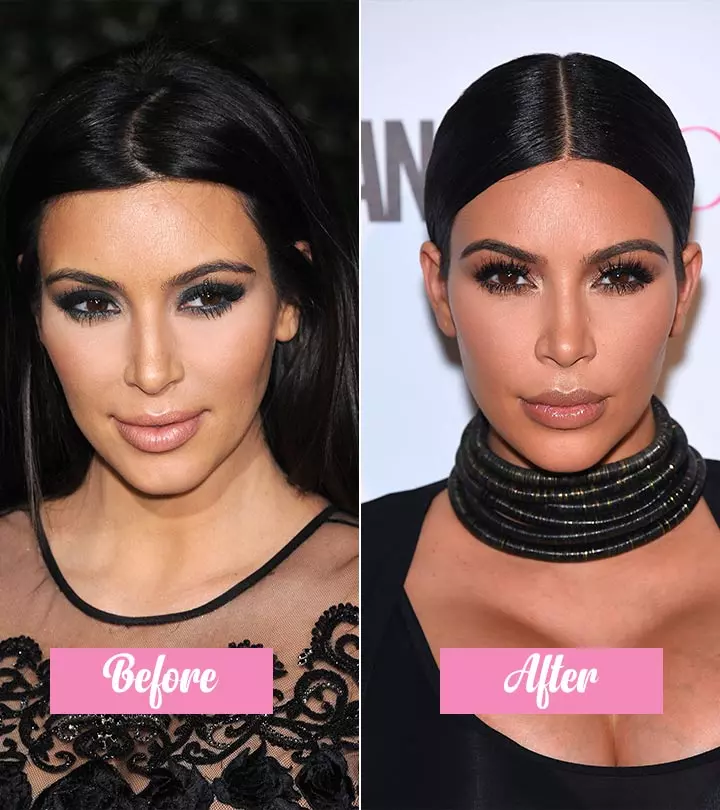
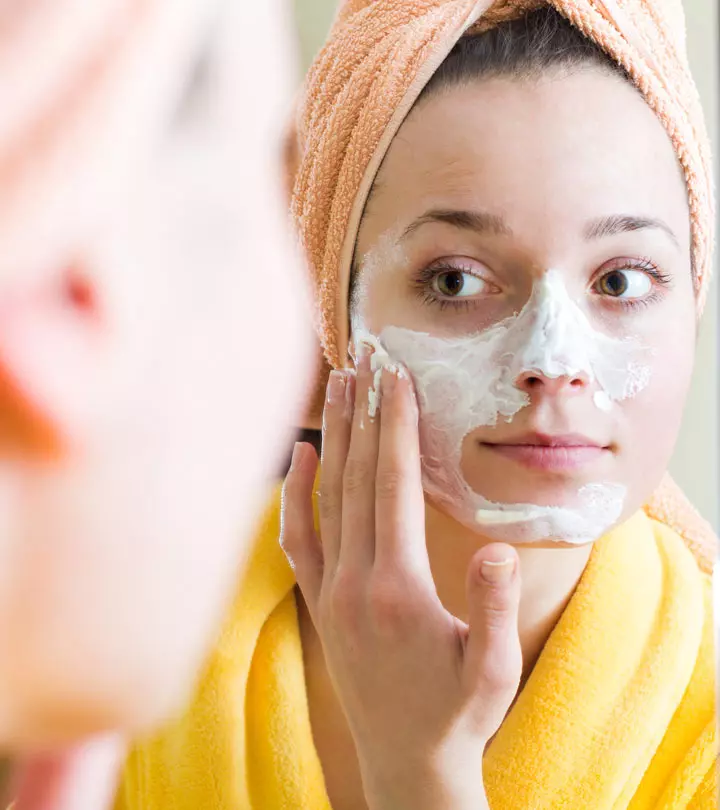
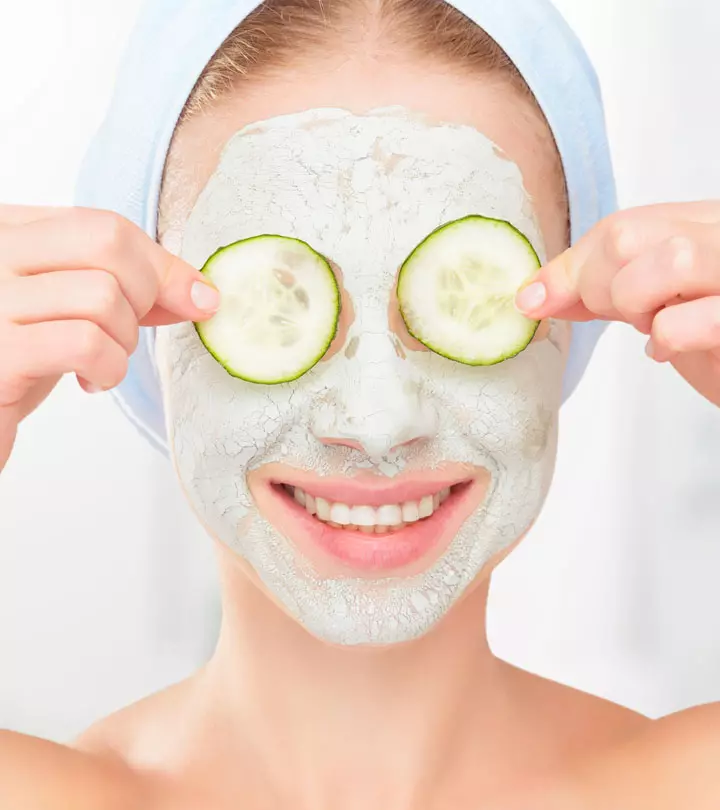


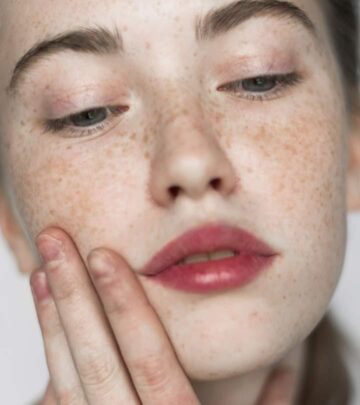

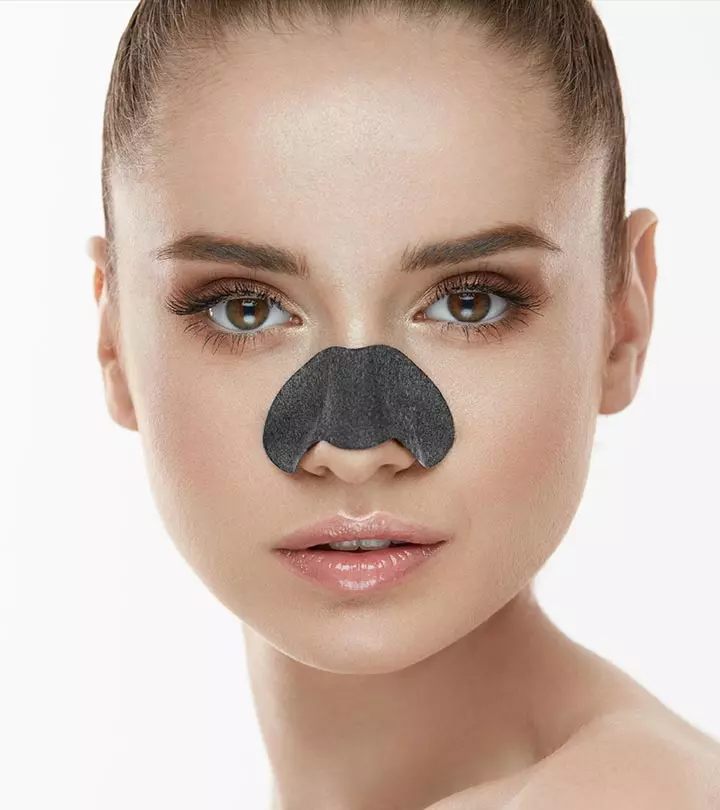
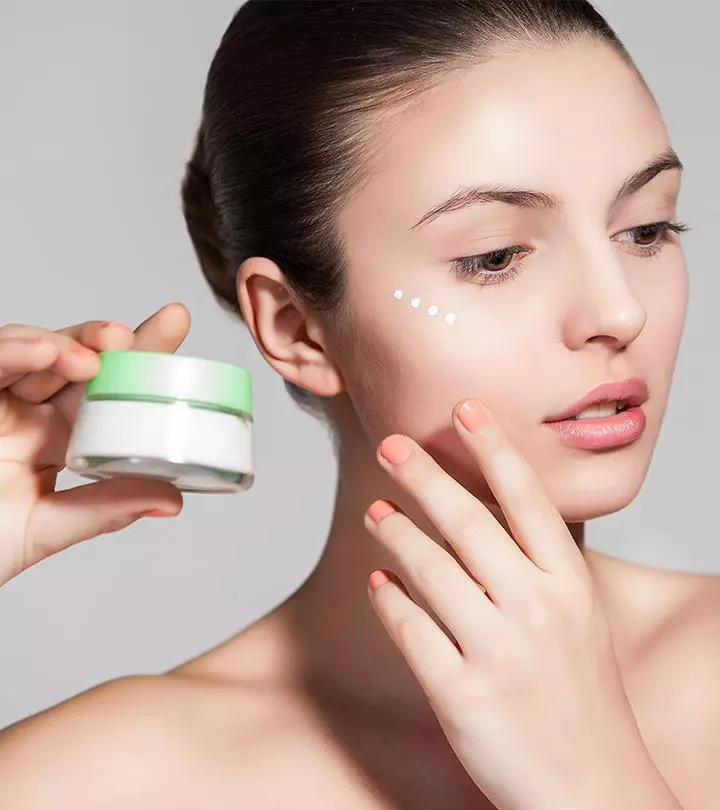
Community Experiences
Join the conversation and become a part of our empowering community! Share your stories, experiences, and insights to connect with other beauty, lifestyle, and health enthusiasts.